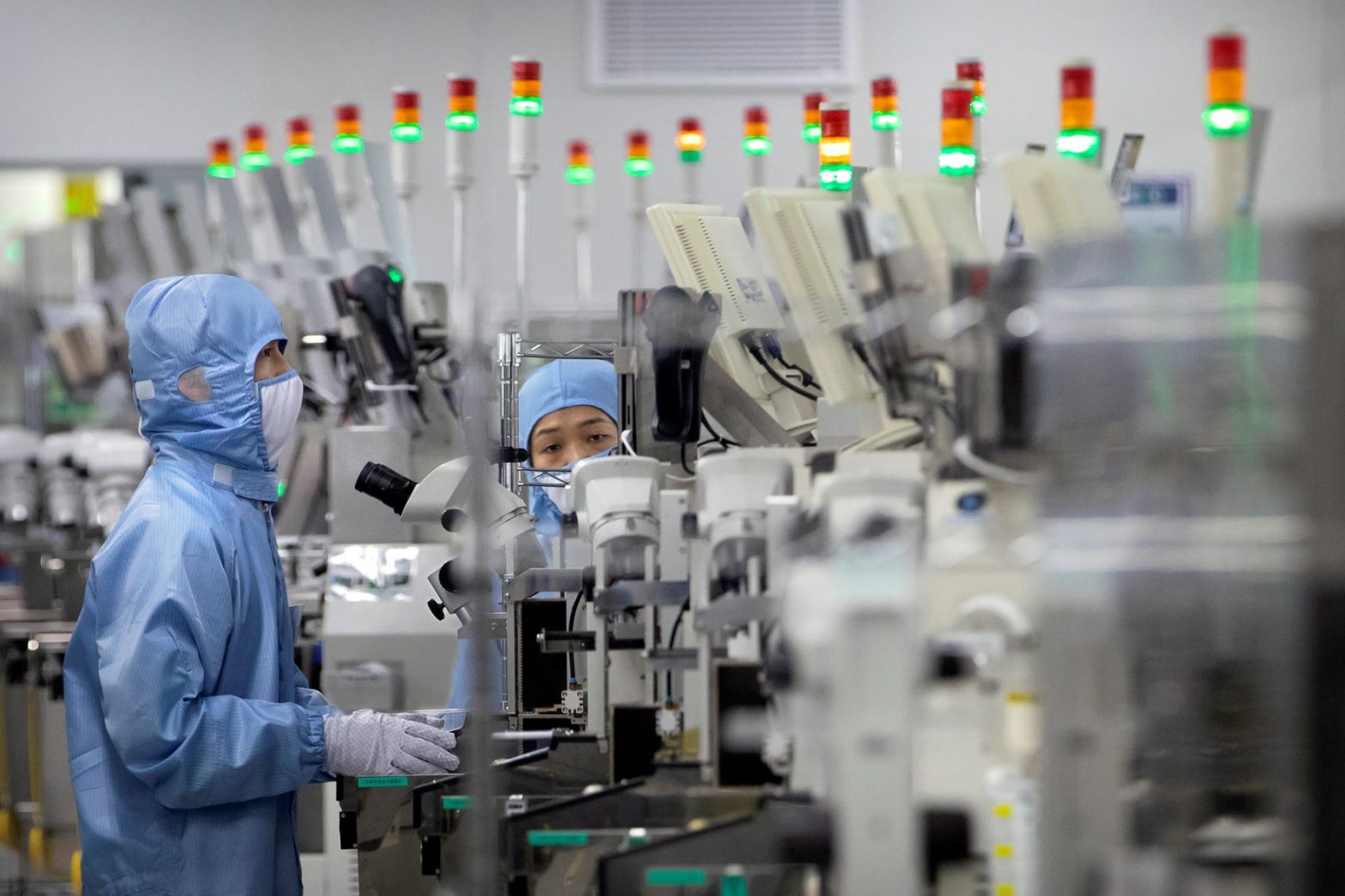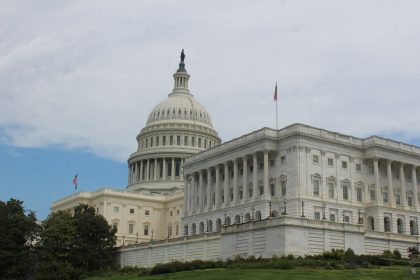House Passes Sweeping Measure to Boost US Competitiveness With China

WASHINGTON — The House voted 222-210 on Friday to approve legislation to bolster research and development to help the United States better compete with China, unravel supply chain snafus and give a much-needed boost to the domestic semiconductor industry.
Rep. Adam Kinzinger, R-Ill., was the lone Republican to support the measure, which most of his GOP colleagues dismissed as falling far short of what was needed to hold China accountable for shoddy trade practices and human rights abuses.
Several also objected to provisions they said had nothing to do with the intent of the bill, but significantly added billions to its cost.
The massive bill, which clocked in at 2,912 pages, included about $52 billion in grants and subsidies to help the semiconductor industry and $45 billion to strengthen supply chains for high-tech products, among other items.
Another provision would subject more lower-cost products made in China to tariffs.
Currently, imports valued at less than $800 are exempted from expedited processing and tariffs. The bill eliminates the threshold for certain countries, most notably China.
On a day when the latest jobs report revealed an unexpected surge in hiring in January, with employers adding some 467,000 jobs, the vote gave congressional Democrats another platform from which to say they’re proactively trying to address voter concerns about the economy.
“This bill is a jobs bill … a jobs bill for manufacturing in America,” House Speaker Nancy Pelosi said during a mid-day news conference.
“The America COMPETES Act will ensure that America’s pre-eminence in manufacturing, innovation and economic strength, and can outcompete any nation.,” she continued. “We are blessed by the leadership of eleven other committees, eleven other committees working very hard to put forth policies, initiatives that were innovative, entrepreneurial and, as we go into conference, become law.”
Rep. Frank Pallone, Jr., D-N.J., chairman of the Energy and Commerce Committee, said with passage of the legislation on Friday, Congress is ensuring “that America can outcompete the rest of the world by ending our reliance on other nations for the manufacturing of critical goods.”
Rep. Suzan DelBene, D-Wash., chair of the New Democrat Coalition, struck a similar theme Friday, describing the passage of the America COMPETES Act as an “important step forward for the future of our country.”
“Our members have heard from Americans across the country about the impact inflation, product delays, and empty shelves are having on their daily lives,” she said.
“This legislation not only provides solutions to these challenges by bolstering American manufacturing and securing our supply chains, but also sets the U.S. up for future opportunities by creating good-paying American jobs, spurring technological advancement, empowering the next generation of American innovators, and promoting American values and ingenuity on the global stage,” DelBene said.
America’s share of semiconductor manufacturing globally has steadily eroded from 37% in 1990 to about 12% now, according to the U.S. Commerce Department.
The Biden administration and members of Capitol Hill have been striving to reverse that trend, which has grown as foreign competitors receive significant government subsidies.
The coronavirus pandemic only served to compound the situation by significantly overtaxing the supply chain for the chips.
The Commerce Department issued a report last week that found the median inventory of some semiconductor products had fallen from 40 days in 2019 to less than five days in 2021.
The report also said stakeholders don’t see the problem going away in the next six months.
Earlier this week, Commerce Secretary Gina Raimondo met with House Democrats to encourage their resolve to act.
During the meeting, she reportedly described the U.S. semiconductor industry as being in a state of “slow atrophy.”
“This bill is saying ‘stop the decline,’” Raimondo said.
But Republicans predicted the legislation will do little on the competitive front, while wasting taxpayer dollars on climate initiatives and other unnecessary programs.
Among the provisions causing the most derision was one providing $8 billion to a fund that helps developing countries adjust to climate change.
Former President Barack Obama pledged $3 billion toward the fund, but his successor, Donald Trump, withheld $2 billion of that total.
Earlier this week, Rep. Michael McCaul, R-Texas, the ranking Republican on the House Foreign Affairs Committee, called it an “unaccountable UN slush fund.”
Other provisions raising Republican hackles included $3 billion allocated for facilities to make the U.S. less reliant on Chinese solar components; and $4 billion to help communities with significantly higher unemployment than the national average.
The Senate passed its version of the America COMPETES Act – called the U.S. Innovation and Competition Act – in June by a bipartisan vote of 68-32.
Now that the House bill has passed, negotiators will try to work out a compromise both chambers can accept.
Raimondo has called for negotiations over the differences in the two bills to begin promptly.
But it may not be easy to reach a viable consensus. Whatever final bill emerges from the negotiations will need support from 10 Republicans in the 50-50 Senate to be passed into law.
After the House vote, Senate Majority Leader Chuck Schumer, D-N.Y., said “two things Americans are demanding are lower costs and bringing jobs back from overseas, and a strong competitiveness bill will deliver on both.
“I look forward to a bicameral conference process that builds on the broad bipartisan support of the Senate-passed U.S. Innovation and Competition Act to supercharge microchip manufacturing here in America, to fix broken and strained supply chains, and invest in the innovation needed to ensure the critical products of today and tomorrow are made in America. We have no time to waste,” he said.
Dan can be reached at [email protected] and at https://twitter.com/DanMcCue.
























